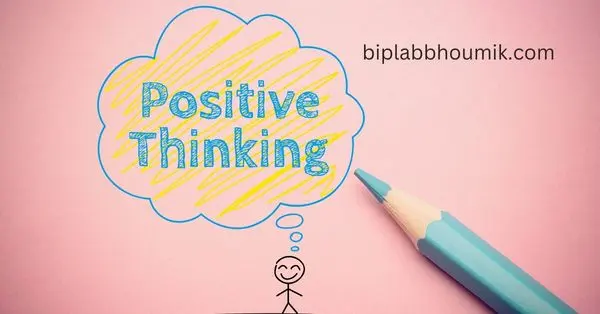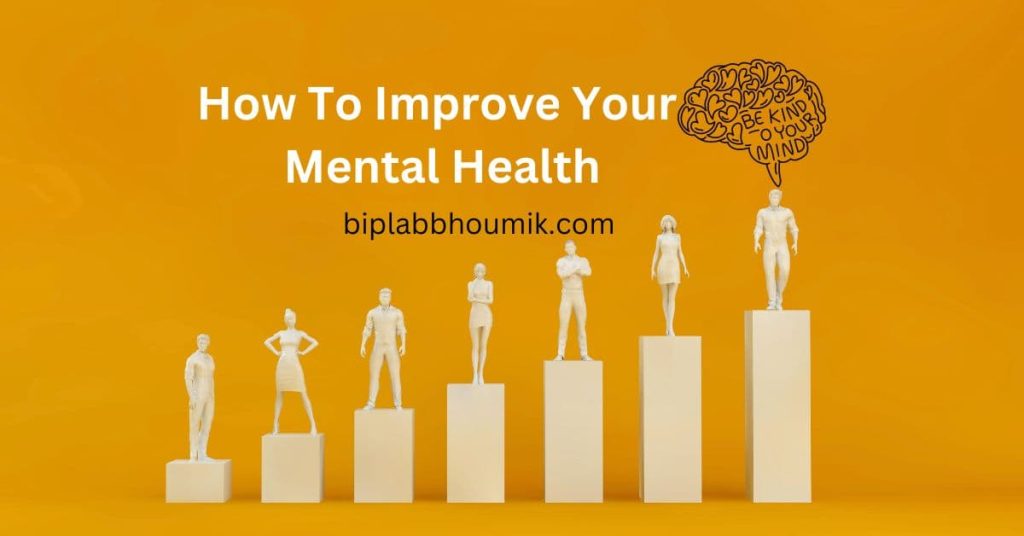It’s no secret that our mental health can have a significant impact on our overall well-being. How to improve your mental health? It may sound like a daunting task, but you can make a big difference with the proper steps.
After all, our mental health is what allows us to process and make sense of the world around us. When our mental health is unbalanced, it can lead to a host of problems, both physically and emotionally. In this post, we will share 12 tips that have worked for me to improve my mental health.
What Is Mental Health?
Mental health is a state of well-being, where an individual feels positive emotions, has control over their thoughts and actions, and is able to meet their basic needs. It can be affected by a variety of things such as family history, environment, and mental illness. Mental health can be improved through various methods such as therapy, self-care, and support from friends or family.
How To Improve Your Mental Health
Luckily, there are a number of things you can do to improve your mental health. Just like physical exercise can help keep your body healthy, mental exercise can help keep your mind healthy. Here are 12 secret tips that improve your mental health:
1: Find an Activity You Love
2: Get Enough Sleep
3: Drink Plenty of Water
4: Eat Healthy Foods
5: Exercise Regularly
6: Practice Yoga or Meditation
7: Take Breaks from Your Tasks
8: Use Positive Thinking Techniques
9: Avoid Negative Thinking
10: Talk to Friends and Family about Mental Health Issues
11: Seek Professional Help if Needed
12: Benefits of Mental Health
1: Find an Activity You Love
There are many things people can do to improve their mental health, but it is important to find something that brings you joy. One way to do this is by finding an activity you love and committing to doing it every day.
Doing something you enjoy can help boost your mood and make you feel good about yourself. There are many options for activities that are fun and healthy, so find one that appeals to you and start enjoying life!
Must Read: How to Be a Good Student
2: Get Enough Sleep
There is a well-known connection between getting enough sleep and improving mental health. A lack of sleep can lead to fatigue, irritability, and mood swings. It also diminishes cognitive performance and increases the risk for chronic diseases such as obesity and heart disease.

To get the most out of your sleep, aim to get at least seven hours of sleep each night. Make sure to avoid caffeine in the afternoon and evening, work on relaxing activities before bed such as reading or meditation, avoid using electronic screens in bed (including phones), and keep a cool room at night.
If you find it difficult to get enough sleep, talk to your doctor about possible treatments such as medication or supplements. Getting enough sleep is important for both your physical and mental health.
Adequate sleep helps to improve mood and stress levels, increase energy levels, decrease anxiety levels, and protect against chronic diseases such as obesity and heart disease. According to the National Sleep Foundation, adults require at least 7 hours of sleep per night to function optimally.
3: Drink Plenty of Water
Drink plenty of water to improve your mental health. Water has been shown to help improve mood, focus, and memory. It also helps reduce stress and anxiety.
This probably is one of the most popular tips to get rid of pimples. Drinking plenty of water is necessary for a healthy body and skin. But it also helps to get rid of pimples and acne.

Drinking lots of water will help to flush out toxins from your body. It will also help to keep your skin hydrated and supple. There are many benefits of drinking lots of water. But, if you want to get rid of pimples, then you should start drinking at least 8 glasses of water every day. You can also drink water before meals.
4: Eat Healthy Foods
Maintaining a healthy diet is one way to improve mental health. Eating a balanced and nutritious diet can help to reduce anxiety, depression, and other mental health issues. Healthy foods include fruits, vegetables, whole grains, and low-fat proteins.
They should be consumed in amounts that provide the recommended daily intake of vitamins, minerals, and fiber. Some good sources of protein include lean meats, poultry, fish, eggs, legumes (beans), yogurt, and soy products. In addition to eating healthy foods regularly, it is also important to get exercise every day.

Exercise has been shown to improve mood and stress levels as well as overall physical health. It can also help reduce symptoms of anxiety and depression.
5: Exercise Regularly
Daily exercise is one of the most important things you can do to improve your mental health. Exercise has been shown to improve mood and stress levels as well as overall physical health.
It can also help reduce symptoms of anxiety and depression. To get the most benefit from exercise, make sure to choose a workout that is appropriate for your fitness level and schedule.

Some good exercises include brisk walking, cycling, swimming, aerobics, and yoga. A moderate amount of exercise is also beneficial for mental health. Try to get at least 30 minutes of activity every day.
6: Practice Yoga or Meditation
Yoga and meditation are great ways to relax, de-stress and focus your mind. If you’re new to yoga, there are plenty of instructional videos or classes you can join. See what’s available at your local gym or community center.
Yoga has been proven to help with stress relief and reducing anxiety, while meditation can help you focus and de-stress. Both practices have been shown to be beneficial for improving overall mental well-being. Yoga can also be helpful for strengthening your muscles and connective tissue, which can also lead to improved physical health.
Meditation may be more beneficial for people who are looking for a longer-term solution as it has been shown to reduce stress levels, improve concentration and promote relaxation. If you’re interested in meditation, there are also many options available.

Today, people cannot concentrate on anything. They lost their concentration easily. Meditation can be the answer to this problem. You can try out a variety of apps, including Headspace and Calm, or join a local meditation group.
No matter what you choose, give yourself some time to try it out and see if it works for you. If you’re not quite ready to commit to regular practice, start off with a few minutes a day. You might be surprised at what a big difference it makes!
Read Also: How to Motivate Yourself
7: Take Breaks from Your Tasks
When you are working on a task, it can be hard to take a break. But taking breaks is important for your mental health. When you take breaks, you can relax and renew your energy. You will also be able to come back to your task with new ideas and perspectives.
If you don’t take breaks, you may feel overwhelmed or stressed. Taking breaks will help improve your mental health, and increase focus, productivity, and satisfaction with work.
People with mental health conditions can suffer from a range of problems that can make it difficult to function in daily life. One way to help improve mental health is to take regular breaks from tasks. Taking breaks also reduces stress and anxiety which can lead to improved mental health.
8: Use Positive Thinking Techniques
Positive thinking is the belief that thoughts and emotions have a powerful effect on the physical world. Some research suggests that practicing positive thinking can help reduce anxiety and stress, boost self-esteem, and improve overall mental health.
While there is no one technique that is effective for everyone, using a variety of techniques together may be most effective in achieving lasting change.

Some people find that practicing positive thinking techniques helps them to feel better both mentally and physically. Other people use mindfulness or visualization exercises to focus their thoughts on positive experiences.
The most important thing is to find what works best for you and stick with it. Finding strategies that make you feel good about yourself is a key part of improving your mental health.
Must Read: How to Be Smart & Intelligent
9: Avoid Negative Thinking
Negative thinking can be damaging to your mental health and can lead to anxiety, depression, and even addiction. When you start to think negatively about yourself and your life, it becomes harder to see any positives.
Try to focus on the good things in your life and avoid dwelling on negative thoughts. This will help you shift your focus from the negative to the positive, which will in turn improve your mental health.
10: Seek Professional Help if Needed
If you are feeling overwhelmed, stressed, or just not feeling your best, it may be time to seek professional help. There are many different types of professionals who can help with mental health issues.
Some options include a therapist, psychologist, social worker, or psychiatrist. It is important to find someone who is experienced in helping people with mental health issues and who will be able to provide you with the support you need.
If you are unsure if professional assistance is the right step for you, talk to your family doctor or another trusted healthcare provider about what might be best for you.
11: Talk to Friends and Family about Mental Health Issues
Mental health is an important topic to discuss with friends and family. Mental health issues can be difficult to talk about, but it is important to do so in order to support one another.
It can be helpful to have a support system when going through a mental health challenge, and talking with friends and family can be a great way to build that support network. Additionally, it can be helpful to know that there are resources available if needed.
It is also important to remember that mental health is not a single issue – there are many different ways that people experience mental health problems. If you are feeling lost or alone, it is important to reach out for help.
12: Benefits of Mental Health
Mental health is defined as the state of mind or an emotional condition that is generally considered to be satisfactory. Mental health can have a significant impact on one’s quality of life and overall well-being.
There are a number of benefits associated with mental health, including improved physical health, increased productivity, and decreased stress levels. Mental health also has a positive impact on social relationships and can lead to reduced rates of depression, anxiety disorders, and other mental illnesses.
Mental health should not be viewed as a problem to be fixed or cured; rather, it is an essential part of healthy living. Anyone can benefit from improving their mental health by learning about the benefits and how to achieve them.
Conclusion
In conclusion, mental health is an important part of our lives and should be treated as such. There are many benefits to improving your mental health, including increased productivity, decreased stress levels, and better social relationships. Anyone can benefit from learning about the benefits and how to achieve them.
Improving your mental health is not easy, but it is worth it! By following these 12 tips, you will be on your way to improved well-being. We hope you like this article if you have any queries, just leave a comment. Thanks for reading this article!
How To Improve Mental Health- FAQs
What are some tips for improving mental health?
Mental health is a state of well-being, where an individual feels mentally healthy and positive. There are many ways to improve mental health, but some tips include:
1. Get enough sleep. Sleep is essential for overall mental health and can be improved by getting at least 7 hours of sleep a night.
2. Exercise regularly. Exercise has been shown to have positive effects on mood and can help improve feelings of self-esteem and happiness.
3. Eat a nutritious diet. Eating a healthy diet can help improve mood and brain function, as well as reduce the risk of developing mental health problems in the future.
4. Connect with friends and family members. Spending time with loved ones can be beneficial for both mental and physical health, and can help boost morale in times of distress or stressors in life.
How can I change my mental habits?
There are a few things you can do to improve your mental health. One is to change the way you think about yourself. You don’t have to be perfect, and mistakes are okay. Try not to compare yourself to others and instead focus on your own accomplishments.
Another thing you can do is find social activities that make you happy. This could include spending time with family or friends, doing something you enjoy, or participating in a hobby that brings joy. Talking with others who share your interests can also be helpful in improving mental health.
What habits will improve your life?
1. Eating healthy foods will improve your physical health.
2. Exercising regularly will improve your physical health.
3. Sleeping for at least 7 hours every night will improve your physical and mental health.
4. Practicing meditation or mindfulness will improve your mental health.
5. Keeping a positive outlook on life will improve your mental health.
How can I reduce stress and anxiety?
Stress is a normal reaction to a stressful situation. However, when stress becomes chronic, it can have negative consequences for mental health. There are many ways to reduce stress and anxiety. Some tips include:
– Taking breaks often: When you’re overloaded with work or other responsibilities, take a break to relieve your tension. Go for a walk, read a book, listen to music or talk with friends. This will help you clear your head and get back to work refreshed.
– Identifying your triggers: What sets off your stress reactions? Once you know what triggers them, try not to engage in those activities when you’re feeling stressed out. Instead, find ways to relax such as meditation or yoga.
– Seeking professional help: If the stress symptoms are causing significant problems in your life, see a mental health professional for assistance. They can provide advice on how to manage stress and recommend treatments if necessary.
What are some good ways to manage depression?
Depression can be a very serious mental health condition that can impact many aspects of a person’s life. There are many different ways to manage depression, and each person will respond to treatment differently. Some good ways to manage depression include seeking professional help, using self-help strategies, and taking medication. It is important to talk with a doctor or other healthcare provider about the best way to manage your depression, as there is no one-size-fits-all approach.
How can I improve my sleep quality?
Improving sleep quality is key to improving mental health. Research has shown that getting enough sleep can improve cognitive function, reduce stress levels, and even decrease the risk of developing diseases like diabetes. There are a variety of ways to improve your sleep quality, but some tips include:
-Establish a regular bedtime and waketime routine. This will help you get into a routine and avoid feeling overwhelmed by the prospect of sleeping.
-Make sure your bedroom is dark and quiet. Exposure to light in the morning can disrupt the body’s natural melatonin production, which can lead to problems sleeping at night.
-Avoid eating heavy meals close to bedtime. Eating large meals late in the evening can increase levels of ghrelin, an appetite hormone that signals to the body that it is time for food. This can lead to difficulty falling asleep later in the night.
How can I better deal with negative thoughts and emotions?
Negative thoughts and emotions can be disruptive to one’s mental health, causing feelings of anxiety, stress, and depression. There are many ways to improve one’s mental health, including developing healthy coping mechanisms for dealing with negative thoughts and emotions, seeking professional help when needed, and maintaining a positive outlook.
What are some healthy coping mechanisms for stress and anxiety?
Stress and anxiety can be debilitating and can significantly impact mental health. Coping mechanisms can help to manage stress and anxiety in a healthy way. Some healthy coping mechanisms for stress and anxiety include:
– exercising regularly
– eating a balanced diet
– getting enough sleep
– engaging in enjoyable activities
– developing relationships that support positive emotions
How can I make sure I’m taking care of myself mentally and emotionally?
There are many ways to improve your mental health, but it starts with taking care of yourself. Make sure to get enough sleep, eat a healthy diet, exercise regularly, and have fun in your free time. Here are some other ways to improve your mental health:
-Talk to someone about how you’re feeling. A friend or family member can be a great support system when it comes to managing stress and anxiety.
-Engage in activities that make you happy. Find things that make you feel good on a regular basis and do them as often as possible. This can help reduce stress and anxiety levels overall.
-Get involved in volunteer work or community services. Doing something that gives back helps reduce the feeling of isolation and provides opportunities for social interaction.
What are some red flags that my mental health is deteriorating?
If your mental health is deteriorating, you may experience changes in your thinking, mood, and behavior. You may become more withdrawn, have less interest in activities you used to enjoy, and sleep more or less than usual. You may also experience changes in your eating habits and weight. Additionally, you may have difficulty concentrating, experience changes in your energy levels, and have increased anxiety or irritability. If you are experiencing any of these changes, it is important to seek professional help.





